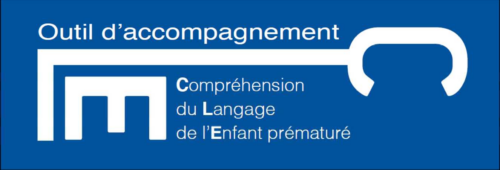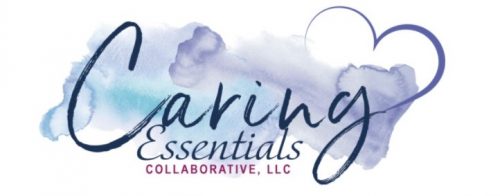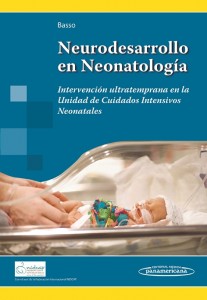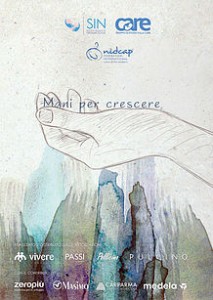The NFI provides endorsement for continuing education programs for healthcare professionals as well as for conferences, books, films, and certain products that support the NFI Mission and Vision.
The NFI provides endorsement for continuing education programs for healthcare professionals as well as for conferences, books, films, and certain products that support the NFI Mission and Vision.

The CLE training is based on the synactive theory of newborn development and behavioral organization by Heidelise Als (1982) and follows the NIDCAP approach (Newborn Individualized Developmental Care and Assessment Program), recognized as the “gold standard” for family-centered developmental care.
This training is provided by a NIDCAP Trainer or a NIDCAP Certified Professional under the supervision of a NIDCAP Trainer, within the framework of a service-oriented approach or formal NIDCAP training (for part of the team). This program was designed and evaluated by NIDCAP Trainers and NIDCAP Professionals from various Belgian hospitals and has received positive feedback from other European NIDCAP Training Centers.
CLE does not replace formal NIDCAP training, but helps to foster reflection and practices leading toward formal training. It meets the needs of maternity healthcare settings, and intensive and non-intensive neonatal units.
Objectives:
Target Audience:
Training Outline (18h with trainer and 2 x 18h individual work)
The training is conducted in three sessions with the trainer, between which participants are expected to work semi-autonomously, following structured tasks over two six-week periods. Outside the training days with the trainer, participants will need at least 3 hours per week to complete their personal work, either during their regular work hours or if that is not possible, during their personal time.
For more details about the program and certification, click here
For more information, please contact:
The NIDCAP-Cirena Education Program (Individualized Care for the Newborn, in Spanish) arises as a necessary alternative for a large group of professionals living and working in countries with limited resources and was developed by Drs. Graciela Basso and Laura Goldberg of the NIDCAP Centro Latinoamericano (NIDCAP Training Center in Buenos Aires, Argentina). After working for many years as a NIDCAP and APIB trainer in Argentina, Southern Europe, and Latin America, Dr. Basso understands the main challenges facing these regions.
While the units in these regions may be highly complex, they lack the time and financial resources to access training programs that signify a paradigm shift in newborn care. Currently, newborn care is still focused on technology and traditional treatment programs.
Professionals, in general, do not have access to study materials in Spanish and, overall, may not understand English. In response, Drs. Basso and Goldberg have written two books in collaboration with prominent professionals and NIDCAP trainers from Southern Europe and Latin America, thereby providing evidence-based and user-friendly reading materials in Spanish.
The program has two learning options (in person or hybrid):
Manuals are provided:
CIRENA I
CIRENA II

Caring Essentials Collaborative is the internationally recognized leader in trauma informed developmental care education for those who serve babies, children and their families across all settings.
The following two courses, developed and offered by Caring Essentials Collaborative, are endorsed by the NFI:
Trauma Informed Professional Certificate Program:
A continuous journey of self-discovery and growth moving toward excellence
The Trauma Informed Professional Certificate Program is an assessment-based program offering both live (virtual) and self-paced curriculum which is grounded by the eight attributes of the Trauma Informed Professional (TIP). This program offers a remarkable personal, clinical, and professional opportunity to discover your own unique therapeutic value and harness your passion and vision for practice. Graduates of this program will support the needed paradigm shift in healthcare to align with the principles of a trauma informed, developmentally supported approach to care.
SURGE Masterclass:
A sudden, powerful movement toward trauma informed developmental care
A unique opportunity to awaken ourselves and others to the growing need for trauma informed care. On the journey to become more trauma informed, the first step is to become trauma aware. Trauma comes in all different shapes and sizes and it all matters. This interactive 3-hour virtual learning experience presents the latest research and brings awareness to the necessity and lifelong impact of a trauma informed approach to care.
For more information please visit the Caring Essentials Collaborative website: https://www.caringessentials.net/
The Infant Behavioral Assessment and Intervention Program (IBAIP) is a proven, comprehensive assessment and intervention model that supports the developmental and neurobehavioral integrity of infants born prematurely with low to extremely low birth weight, or with disabilities. The focus of the IBAIP is not “what to teach” but “how to teach,” a process oriented approach. By focusing on how to facilitate learning and social interaction, the IBAIP
adds a critical individualized, relationship-based, family-centered, and neurobehavioral approach to infant intervention, often lacking in traditional early intervention methodologies. The IBAIP is a training and education program for early intervention and health care professionals.
For more information please see the IBAIP website: www.ibaip.org
FINE is a program designed to introduce the principles and practices of newborn developmental care to healthcare professionals of all educational backgrounds, who care for preterm and otherwise high-risk newborn infants and their families. The FINE Program is based on the principles of NIDCAP (Newborn Individualized Developmental Care and Assessment Program) and has been endorsed by the NFI (NIDCAP Federation International) as foundations in NIDCAP education. The FINE Program’s Directors are NIDCAP Trainers Inga Warren, Dip COT, MSc, Monique Oude Reimer, RN, and Nikk Conneman, MD.
FINE currently is a three-tiered program; a pre-FINE e-learning program is in development:
FINE 1 involves a two-day classroom-based orientation that includes lectures and practical workshops.
FINE 2 consists of a four to six-month program based on a series of assignments that focus on observation, family participation and reflection. Students carry out observations in their own workplace. The goal is to change personal practice and to develop good role models of care. Written reflections are submitted for formative assessment by a FINE mentor (usually a NIDCAP Trainer or NIDCAP Professional with appropriate skills). On completion of the program, mentors typically are in a position to judge the student’s suitability for NIDCAP training and when appropriate facilitate the student’s transition to formal NIDCAP training. Mentors for FINE 2 must first complete the FINE-2 course themselves and then be supervised by an experienced FINE mentor during their own mentoring of two or more students.
FINE 3 involves a family case study that is designed to explore systems organization and a quality improvement project. Supervision by an appropriately experienced FINE mentor is provided. Students use the NIDCAP Nursery Assessment Scales to evaluate practice in their setting. The course culminates in a formal presentation or publication. Some elements of FINE 3 may be appropriate before and some after NIDCAP training. Timelines for Level 3 are flexible.
Students must complete FINE 1 before FINE 2, and FINE 2 before FINE 3.
FINE Training uses a standardized set of learning materials that are regularly updated. All FINE courses use the official FINE logo, handbooks and structure. In order to meet the requests for education in many different countries, the FINE 1 and 2 materials are designed to be easy to read and to translate into other languages.
FINE Trainers are professionals, who have obtained the approval of the FINE Directors in the form of a license that is issued by the legal department of Erasmus Medical Centre, Rotterdam. All license holders at this time are approved NIDCAP Trainers, who take responsibility for maintaining the FINE standard of teaching and mentoring in the geographical area for which their license is granted, i.e. the country or region in which their NIDCAP Training Center is based. Before introducing FINE, potential licensees must attend training sessions conducted by or with one of the FINE Directors, who will act as mentor as potential licensees set up their own program. The NIDCAP Trainer, who is a license holder is responsible for selecting and managing the faculty for all levels of FINE training in their geographical domain.
Requests for training in countries that do not have a NIDCAP Training Center must be referred to the FINE Directors, who will negotiate training contracts as appropriate. Priority is given to training in areas that have the potential for sustainable national impact. Licensees must obtain special permission from the FINE Directors in order to train outside their contracted area.
FINE Contact: Inga.Warren@gmail.com
The SOFFI MethodSM is designed to help caregivers become Co-Regulators, using evidence-based interventions designed to help infants maintain homeostasis during feedings, or regain homeostasis if the infant becomes dysregulated. Erin Sundseth Ross, Ph.D., CCC-SLP developed the SOFFI MethodSM, a 2-day conference offering that is available to hospital and community professionals.
For a list of upcoming course dates please visit the Feeding Fundamentals website:
www.feedingfundamentals.com
A teaching and training program for staff and families at the Heidi Center at Meyer Hospital, Kfar Saba, Israel. The course is offered in Hebrew.
An advanced course offered under the Heidi Center at Meyer Hospital, Kfar Saba, Israel. The course is offered in Hebrew.
The NOMAS is a reliable tool for the evaluation of newborn sucking patterns in pre-term and term infants. The NOMAS provides a comprehensive description of the infant’s feeding patterns and enables the examiner to identify normal oral-motor patterns and to differentiate disorganized from dysfunctional patterns.
For more information visit: www.nomasinternational.org
Sheraton Sand Key Resort
Clearwater Beach, FL
March 5-8, 2025
 Neurodesarrollo en Neonatología Intervención ultratemprana en la Unidadde Cuidados Intensivos Neonatales
Neurodesarrollo en Neonatología Intervención ultratemprana en la Unidadde Cuidados Intensivos NeonatalesAuthor: Graciela Basso, MD, PhD
For more information visit:
www.medicapanamericana.com
 The Italian Society of Neonatology (La Società Italiana di Neonatologia) and the Neonatal Care Study Group together with Vivere Onlus produced the film Mani per crescere. The movie was filmed in the newborn intensive care units of Modena Univeristy Hospital and Turin University Hospital. The film was produced to emphasize the importance of the role of infants and their families as active collaborators in their own care process in the NICU, and also to increase the awareness among the Italian NICUs of a neurodevelopmental individualized approach for the care of preterm infants.
The Italian Society of Neonatology (La Società Italiana di Neonatologia) and the Neonatal Care Study Group together with Vivere Onlus produced the film Mani per crescere. The movie was filmed in the newborn intensive care units of Modena Univeristy Hospital and Turin University Hospital. The film was produced to emphasize the importance of the role of infants and their families as active collaborators in their own care process in the NICU, and also to increase the awareness among the Italian NICUs of a neurodevelopmental individualized approach for the care of preterm infants.
For more information on the film please visit the Vivere Onlus website.
Watch the trailer in Italian here. The English version of the trailer will be available soon.